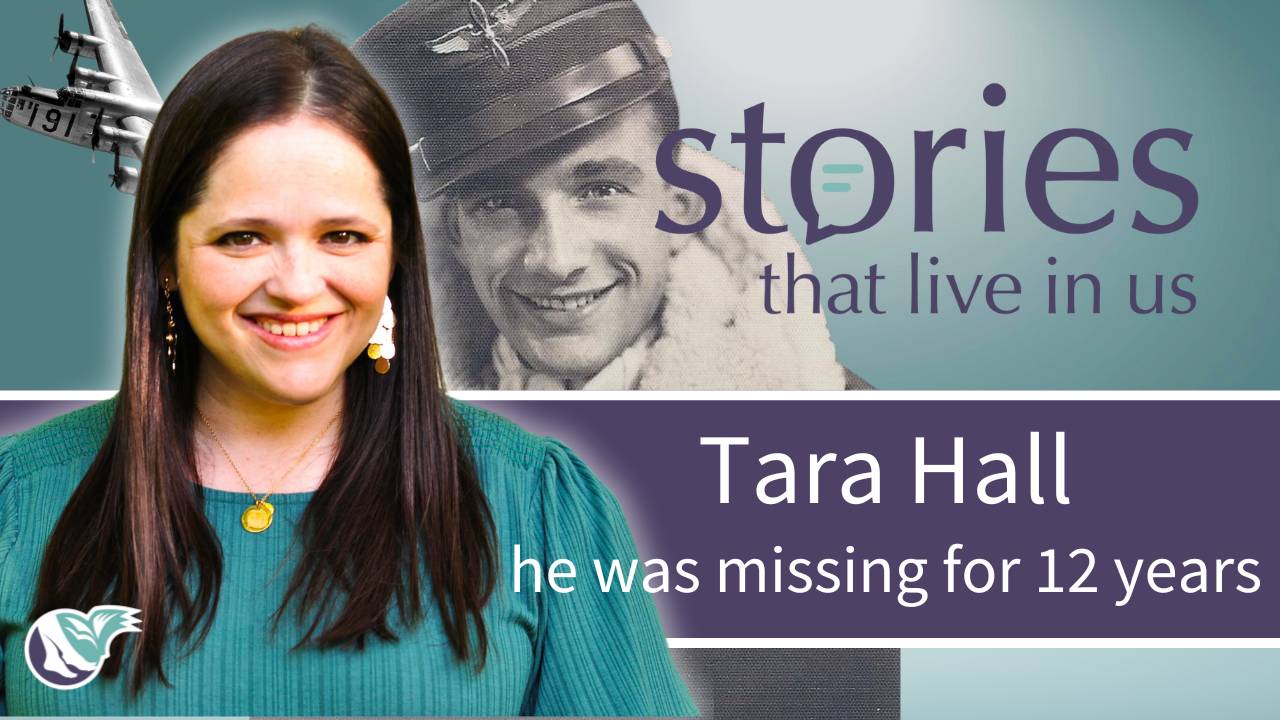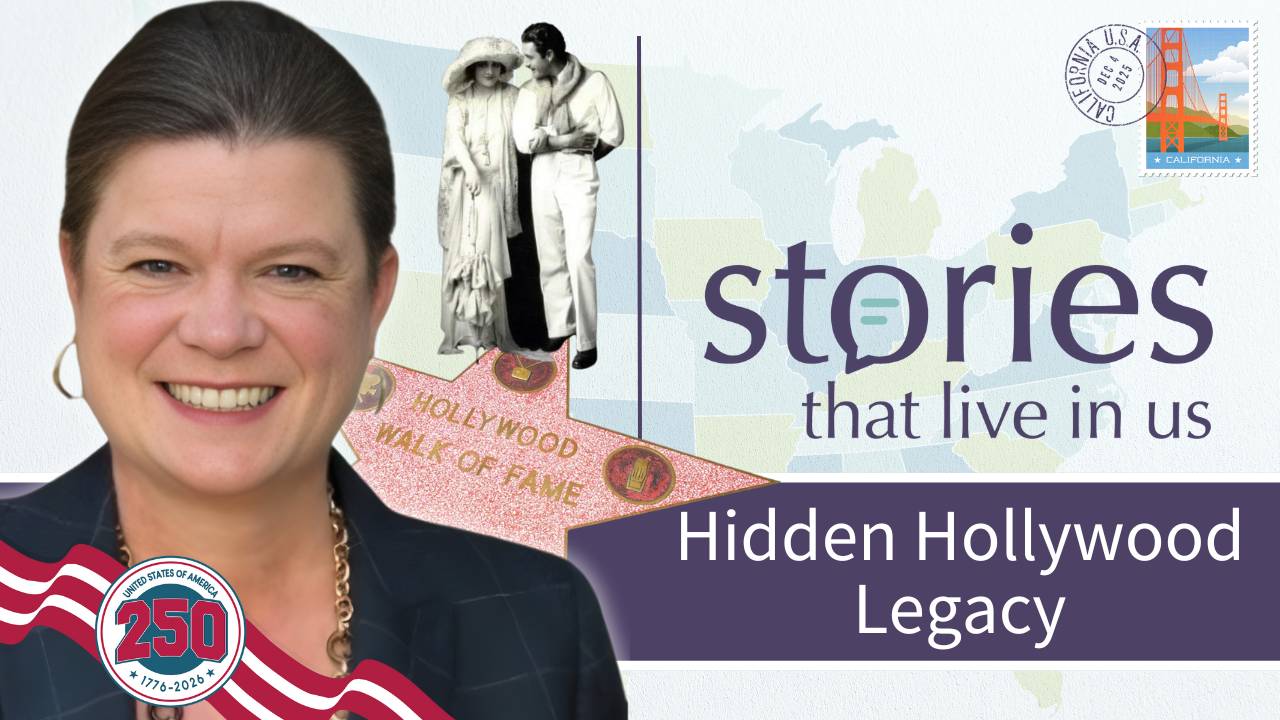Don't Worry About Me, Dad: How One WWII Letter Unlocked a Family's Hidden Grief
May 22, 2025
Have you ever stumbled across a family story that left you with more questions than answers? A name mentioned in passing that suddenly opens up an entire world of history you never knew existed? For my Ancestry colleague Tara Hall, that moment came during a high school Veterans Day event when her mother casually mentioned, "Oh, you have a great uncle that was killed in the war." This simple sentence would eventually lead Tara on a decades-long journey to piece together the story of a young man who, despite being gone for over 75 years, continues to inspire resilience in the generations that followed.
A Navigator Lost in the Stars
"Don't worry about me, Dad. I'm going to be okay." These words, written in a letter from Second Lieutenant Norman Harris to his father, carry an almost unbearable poignancy when you know what happened next. Norman, a navigator on a B-24 bomber—planes so easily destroyed they were nicknamed "flying coffins"—was shot down over Germany on just his third mission. The crash near Dessau in 1945 claimed multiple lives and left Norman's family in an agonizing limbo that would last for twelve years.
What makes Norman's story particularly moving isn't just the tragedy of his death, but the profound silence that followed. Tara's grandfather, who served in the Navy during the same war, never spoke about his brother. Norman's oldest brother Gene, who had inspired Norman to join the Army Air Corps as a navigator, tried once to record his memories but shut off the tape when the emotions became too overwhelming. The pain was too deep, too personal to articulate.
As Tara told me during our conversation, "He's always been this enigma for us." Family members knew the bare facts, that Norman had died in the war, but the person behind those facts remained elusive. Who was the young man who secretly read poetry and asked his sister not to tell anyone? What dreams did he have beyond the navigator's dome where he studied the stars to guide his crew home?
The Whole Story
If you haven't listened to this powerful episode yet, take a moment to hear Tara's journey to uncover her great-uncle's story:
Prefer audio only? Click here to listen on your favorite podcast app.
🎧 Listen to the full episode to discover:
- How a high school Veterans Day event sparked Tara's curiosity about an unknown great-uncle
- The heartbreaking 12-year wait Norman's family endured before his body was identified
- The poignant letters Norman sent home, including secret confessions about reading poetry
- How military records revealed both painful details and precious insights into his life
- The way Norman's story continues to provide strength to his family generations later
- The moving account of Norman's father, who wrote, "The ache is still there and I suppose it will stay as long as I live"
The Power of One Story
Norman's story demonstrates how a single life, even one cut tragically short, can ripple through generations. The raw honesty of his father's words, written decades after receiving that first devastating telegram, reveals the enduring nature of a parent's love and loss:
"I received a telegram from the War Department that my son, Norman, was reported missing. That was all. There was no explanation or further details. I was shocked, but I kept saying to myself he's probably a prisoner of war. It was a long wait, and a discouraging one, before we were informed that he had been declared dead... As this is being rewritten, it is 24 years since Norman left to go overseas, but the ache is still there and I suppose it will stay as long as I live."
Norman's mother carried her grief differently but no less deeply. Years later, in the 1970s, thirty years after Norman's death, Tara's grandmother discovered her in a heartbreaking moment of private mourning:
"She eventually heard her crying and so she kind of snuck in... and she saw her in a set of drawers that she kept Norman's clothes and his picture and she was just weeping over that set of drawers looking at his picture 30 years later."
This hidden grief speaks to something profound about how families process loss. Norman's mother had appeared stoic for decades, but the pain remained, surfacing in private moments when she thought no one was watching.
Yet what struck me most in Tara's telling was how Norman's story has transformed from an absence (an enigma, as she called him) into a presence that actively strengthens her family. As Tara explained, discovering her ancestors' struggles has helped her family face their own challenges with greater resilience:
"I hope that our youth today, the youth and teenagers, can look at all of the super, super hard things that our ancestors went through and look at that and say, 'Okay, they went through something much harder than I am going through right now. I need to be more resilient and not let them down.'"
When Tara's family experienced the devastation of losing a young nephew to cancer, they found comfort in connecting their grief to those who had walked similar paths before them.
"We looked at all of those women that had lost their sons and daughters and we were able to say, 'Okay, we're not alone, we can take from their experience and become more resilience.'"
This is the transformative power of family history—not just to satisfy curiosity about the past, but to provide context, perspective, and strength for navigating our present challenges.
Your Story
Think about the "enigmas" in your own family tree. Those names you've heard mentioned but never fully understood. The relatives who died young or whose stories were shrouded in silence. What might their lives teach you if you took the time to piece together their stories?
As Tara so beautifully put it, "We have the edge pieces of the puzzle, we have the full outline of a puzzle, but not the meat inside." The journey of family history often involves gathering those interior pieces from scattered sources—military records, letters, oral histories, and even the silences that speak volumes about what was too painful to discuss.
Story Seeds 🌱
Plant these conversation starters and watch your family stories grow.
- For Older Relatives: "Were there any family members who served in the military that we don't often talk about? What do you remember about them or about how their service affected the family?"
- For Parents/Grandparents: "Was there ever a time when someone in our family was missing or when you didn't know what had happened to them? How did the family cope with that uncertainty?"
- For Siblings/Cousins: "Do you remember any stories about relatives who died before we were born? What impressions did you form of them based on how others talked—or didn't talk—about them?"
- For Extended Family: "Are there any letters, photographs, or mementos from relatives who served in the military that you've kept? What do these items mean to you, and what do they tell us about that person?"
Story Sparks 🔑
Unlock your family's hidden stories with these research techniques.
- Search Fold3's "Missing Air Crew Reports" if you had relatives who served in the Army Air Forces during World War II. These detailed reports often contain eyewitness accounts of what happened to missing airmen and can provide closure for families who never knew the full story.
- Request an Individual Deceased Personnel File (IDPF) from the National Archives for relatives who died while serving in World War II. These files contain detailed information about recovery, identification, and burial of service members. For surnames A-L, these files can be ordered directly from NARA.
- Create custom timeline events in your Ancestry tree for military relatives that includes not just their service dates, but also major battles or events they might have experienced. Add contextual details about what was happening in the war when they served to better understand their experiences.
- Search newspapers to look beyond the facts of death and uncover more about the person who lived. Look for mentions in social columns, school achievements, or community events that might reveal personality traits and interests of relatives who died young.
As we approach Memorial Day, stories like Norman's remind us that behind every name on a monument or every star on a memorial wall was a full, complex human being with dreams, fears, and treasured connections. The "ache" that Norman's father described is part of countless families' stories. By honoring these stories and bringing them into the light, we not only remember those we've lost but also strengthen those who remain.
Have you discovered a military story in your family that changed how you understood your history? Share your experience in the comments, or reach out if you need guidance on researching your own family's military service. And if this episode touched your heart, please subscribe to "Stories That Live In Us" wherever you get your podcasts, and leave a rating and review to help others find these meaningful family stories.
© 2025 Crista Cowan. All rights reserved.







